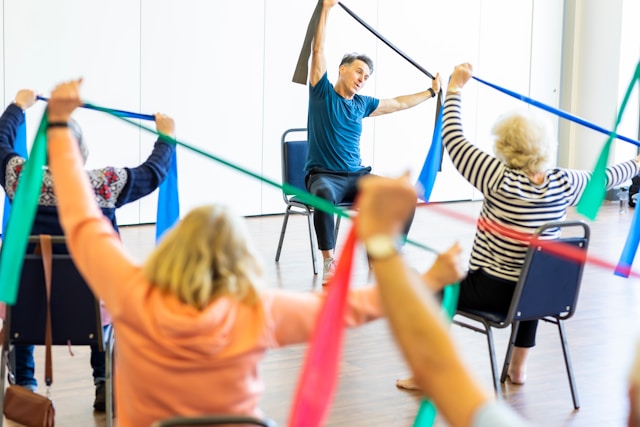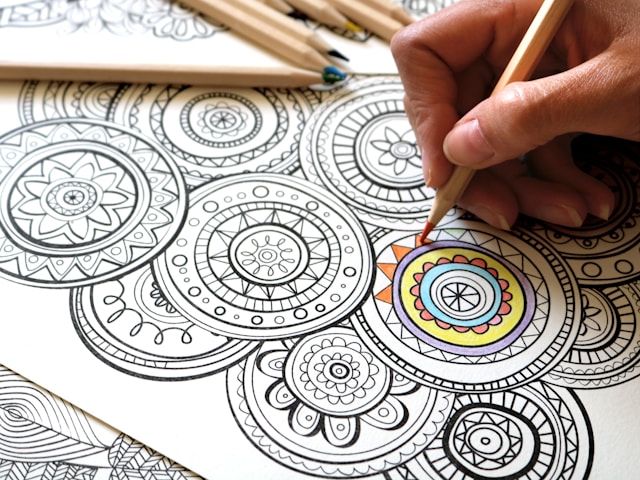
How Personalised Activities Enhance Wellbeing in Supported Living
Enjoying meaningful activities that reflect a person’s past interests, identity, and experiences is so important for building a sense of belonging, and settling into a new community. These activities also play a crucial role in supporting personal identity, helping individuals maintain their sense of self and uniqueness. Personalised and thoughtfully designed activity programmes ensure residents feel valued and a person centred approach ensures activities are tailored to each individual's preferences, background, and hobbies, respecting their history and abilities.
Choosing Activities to Promote Comfort and Physical and Mental Wellbeing
Physical activity plays a crucial role in maintaining both mental and physical health—especially for people living with neurological conditions. Supported living homes often offer a variety of exercise classes tailored to individual needs and abilities, such as chair-based yoga, gentle stretches, sensory movement sessions, or gentle movement. Gentle exercise and gentle exercises are suitable for all abilities and help boost the immune system. For example, younger residents with conditions like multiple sclerosis or cerebral palsy may benefit from physiotherapy-led activities tailored to improve muscle tone, coordination, and balance.
These familiar movements connect residents to their active past, supporting independence and boosting confidence. Outdoor time is equally important: sensory gardens or wheelchair-accessible walkways encourage residents to engage with nature, enjoy fresh air, and participate in outdoor activities that can increase energy levels and support physical and mental wellbeing, which can reduce stress and improve mood.
For those requiring nursing care, gentle physical activities such as supported walking or assisted stretching help maintain muscle strength, physical independence, and support with everyday tasks while ensuring safety. Occupational therapists work closely with residents to adapt activities to their physical capabilities and cognitive needs. Occupational therapist assessments help tailor activities to individual health conditions and support residents' needs, delivering personalised care, especially for those with neurological impairments like acquired brain injury or Parkinson’s disease.
The Importance of Creative Expression
Creative activities offer lots of emotional benefits and help maintain connections for people of all ages. Art classes, crafting sessions that use a variety of craft materials to enhance creativity and engagement, music-making, music sessions, and flower arranging are opportunities for self-expression and skill development. For younger residents with neurological conditions, music therapy sessions or sensory art stimulates cognitive function and emotional regulation. Activities like creating tactile collage panels or working with scented materials can give positive sensory experiences and reduce anxiety. Residents with limited communication can also participate through adaptive tools like textured brushes or digital creativity apps, enabling continued self-expression and a sense of achievement.

Encouraging Social Connection and Community
Social interaction is essential for well-being across all ages and abilities, yet residents with complex neurological needs often face barriers to socialising. Maintaining a social life is especially important for residents, as it contributes to their overall well-being and quality of life. Supported living homes embrace these challenges by creating inclusive, adaptable social opportunities.
Group activities may include adapted icebreaker games, music and movement sessions, or collaborative crafts, allowing residents to engage at their own comfort levels—whether that means joining in fully or observing. These activities help residents connect with fellow residents and other residents, fostering friendships and a sense of community. For instance, residents with speech difficulties might enjoy socialising through group drumming circles or interactive story-telling that uses visual aids. These activities also encourage conversation among participants, promoting companionship and mental engagement.
Regular social events such as themed parties or afternoon teas, including afternoon tea as a key social event, include family and friends, strengthening support networks. Themed parties often feature live entertainment as part of the social calendar, providing engaging experiences for everyone. Connecting with the wider community through outings to sensory-friendly venues or involvement in local groups enhances social experiences and reduces isolation. Fun activities are essential in promoting engagement and enjoyment, supporting residents' physical and mental well-being.
Thoughtful communal spaces designed for accessibility and sensory comfort help nurture interactions. Quiet areas offer respite, while lively social zones encourage engagement, ensuring everyone feels included and valued.
Mental Stimulation Through Thoughtful Activities
Cognitive engagement supports memory, concentration, and mental health, especially important for residents with neurological conditions that affect brain function. Activities coordinators play a key role in planning and delivering activities, including quizzes, puzzles, adapted cognitive exercises, word games, and board game sessions suited to individual preferences and abilities. One-to-one sessions, one-to-one time, and one-to-one activities are valuable for personalised cognitive stimulation, such as memory activities using familiar music or photo albums for residents with brain injuries or dementia. For younger adults with learning disabilities, computer-based educational games or themed discussion groups can provide both learning and enjoyment.
Specialised programmes encourage life-long learners to share knowledge and explore new interests, reinforcing identity and purpose. Meaningful activity encourages individual residents to actively participate and supports their cognitive and emotional well-being. Activities that challenge cognitive skills also foster independence and self-esteem.
Building Community Through Leisure and Entertainment
Leisure activities greatly contribute to social bonding and emotional health. Enjoyable options like garden games, dance classes, or interactive live performances engage residents of all ages and abilities. These interactive live performances can be a fun activity for residents, providing both entertainment and opportunities for personal reflection. Animal therapy, such as visits from therapy dogs or small pets, offers companionship, comfort, and sensory engagement, important for neurological conditions affecting mood regulation or anxiety.
The Role of Personal Interests and Individual Hobbies
Supporting personal interests and hobbies is key to engagement and satisfaction. Whether it’s traditional crafts, technology use, reading, or music, activities connecting to residents’ pasts and present preferences bring relevance and joy. It is important to tailor activities to individual hobbies and interests, ensuring each resident experiences personalised mental stimulation and meaningful engagement.
Younger residents with neurological conditions may enjoy adapted hobbies like accessible gaming, digital art, or sensory gardening, while also developing life skills such as cooking or personal care routines. Sharing skills with peers or the care team fosters connection and reinforces identity and confidence. Familiar activities can be especially soothing for residents with dementia or brain injuries, triggering positive memories and offering calm reassurance.
What is Person Centred Activity Planning?
Providing a range of activities is important, but tailoring these programmes to the unique needs, interests, and abilities of each resident—ranging from 16 years upwards and often living with complex neurological conditions—is essential. A key principle in this process is the incorporation of person-centred activities, ensuring that each programme is meaningful and relevant to the individual.
Person-centred planning involves understanding each resident’s background, strengths, challenges, and goals to create meaningful, manageable engagement. For example, activities for a young adult with an acquired brain injury might be adapted to include shorter sessions with sensory breaks, while a resident with spinal cord injury may engage in technology-assisted hobbies or adapted sports.
The care team collaborates with residents, families, and healthcare professionals—such as occupational therapists, physiotherapists, and speech therapists—to design and regularly review personalised programmes. Further training for staff and collaboration with the local authority can enhance the quality of activity programmes by ensuring staff are equipped with up-to-date skills and that residents have access to appropriate external support and assessments. This ensures activities are safe, enjoyable, and supportive of changing needs.
Occupational therapy plays a crucial role in adapting activities to promote independence and prevent frustration. This includes supporting residents to develop or maintain practical life skills like budgeting, communication, or cooking, depending on individual capacities and interests. Crucially, person-centred care empowers residents to make choices about how they spend their time, respecting autonomy and supporting dignity.
The Benefits of a Wide Choice of Activities
A well-planned activity programme connects residents’ past interests to their current lives, reinforcing identity, purpose, and physical and mental wellbeing. Care homes and residential homes benefit greatly from such programmes, as they enhance residents' routines, promote social interaction, and support overall well-being within these environments.
For those staying short-term in respite care, familiar and engaging activities make the experience rewarding and less daunting. Family participation in activities further enriches this time, helping loved ones feel supported and connected.
A care home committed to personalised, engaging activities—and nursing home environments that also prioritise these standards—reflects excellence in care. Families can feel confident knowing occupational therapists and activity coordinators collaborate to create meaningful, tailored programmes. While regulatory ratings such as the CQC provide insight into care standards, seeing how a home builds purposeful activity, social connection, and honours residents’ life stories offers a true understanding of the quality of life it provides.
At Dee View Court Neuro Care Centre we offer a range of tailored activities can enhance daily life at Dee View Court. Whether it’s supporting a much-loved hobby or introducing new ways to stay engaged, our dedicated team takes the time to understand each person’s interests, needs, and goals. Get in touch to arrange a visit and experience our approach to truly individualised care.
